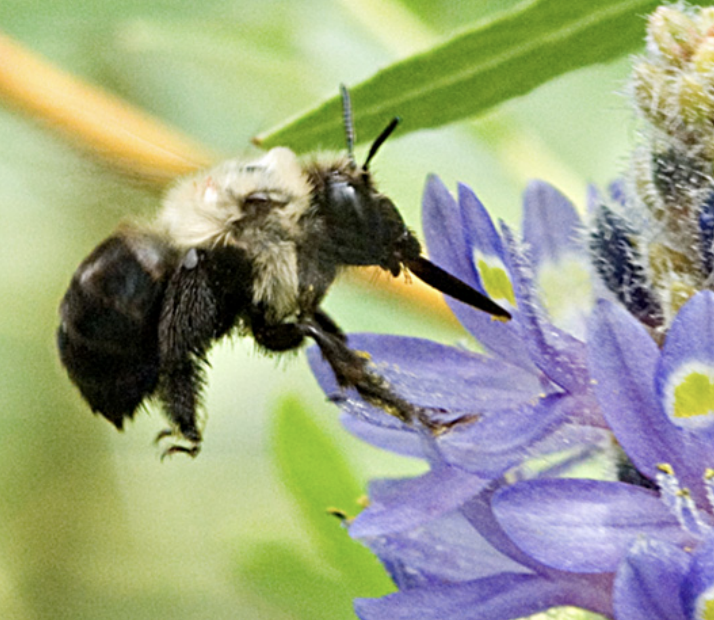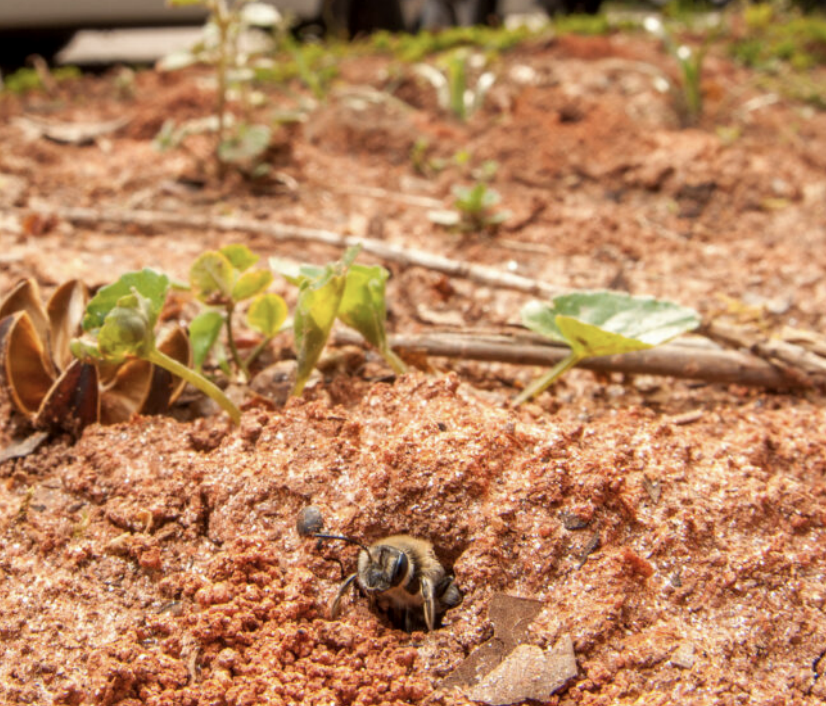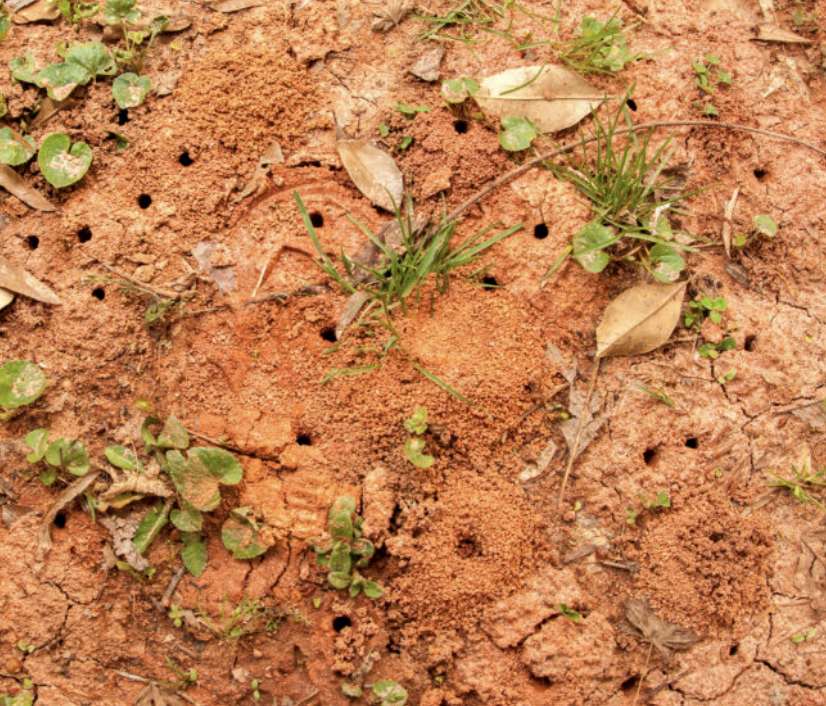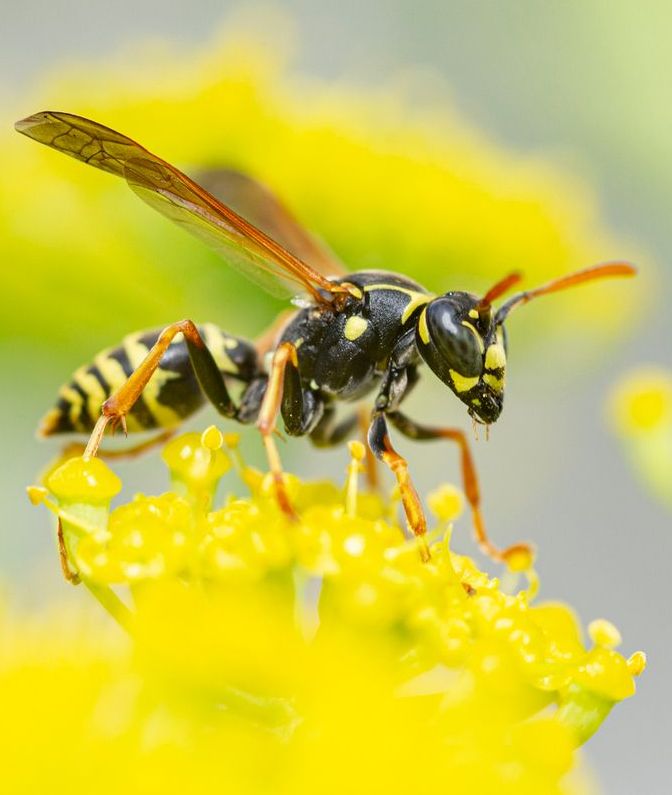|
By Matt S., County Extension Director and Horticulture Agent, Pitt County Though I normally write about plants, there are many insects we encounter while outside gardening. Some can be problematic for our plants, but most are non-pests and many are beneficial. Everyone knows about honey bees, but less well understood are ground-nesting bees such as miner bees. Miner bees are active for a few weeks in early spring and are out and about now.
their nests in the day, the sight of so many bees flying around in the yard at ankle or knee height can be a bit intimidating.
As honey-bee populations decline, the importance of miner bees and other native bee species is increasing, because, though they do not produce honey, they are important pollinators. Miner bees are known to frequent many ornamental and edible flowering plants. Other solitary ground-nesting bees, such as mason bees (Genus Osimia, Family Megachilidae), and digger bees (Genus Anthophorini Subfamily Apinae of the family Apidae), also play an important role as pollinators and lack aggressive characteristics.
heavily watering the area may drive them to nest somewhere else without killing them. Once you’ve successfully relocated them, reseeding the area with grass may prevent them from returning next year.
the best way to treat it is to spray into the nest in late afternoon or early evening with a hornet and wasp spray. Most of the colony will be inside the nest at this time of day, so a good strong spray will likely eliminate them.
Matthew Stevens is the County Extension Director and Horticulture Agent for North Carolina Cooperative Extension’s Pitt County Center. If you have questions about this article or gardening in general, please contact the Pitt County Extension Master Gardener Infoline at 252-902-1705. Photo 1: Miner bees are important pollinators. Photo by Charles Schurch Lewallen, U.S. Forest Service Photo 2: An Andrena miner bee pokes its head out of a tunnel it made in an urban yard. Photo by Matt Bertone, NC State Photo 3: Andrena miner bees make numerous holes in the ground Photo by Matt Bertone, NC State Photo 4: Yellowjackets pollinate flowers but are aggressive. Photo by IStock credit Apodiam
0 Comments
Leave a Reply. |
Matt Stevens
Pitt County Extension Director & Horticulture Agent Archives
July 2024
Categories |




 RSS Feed
RSS Feed